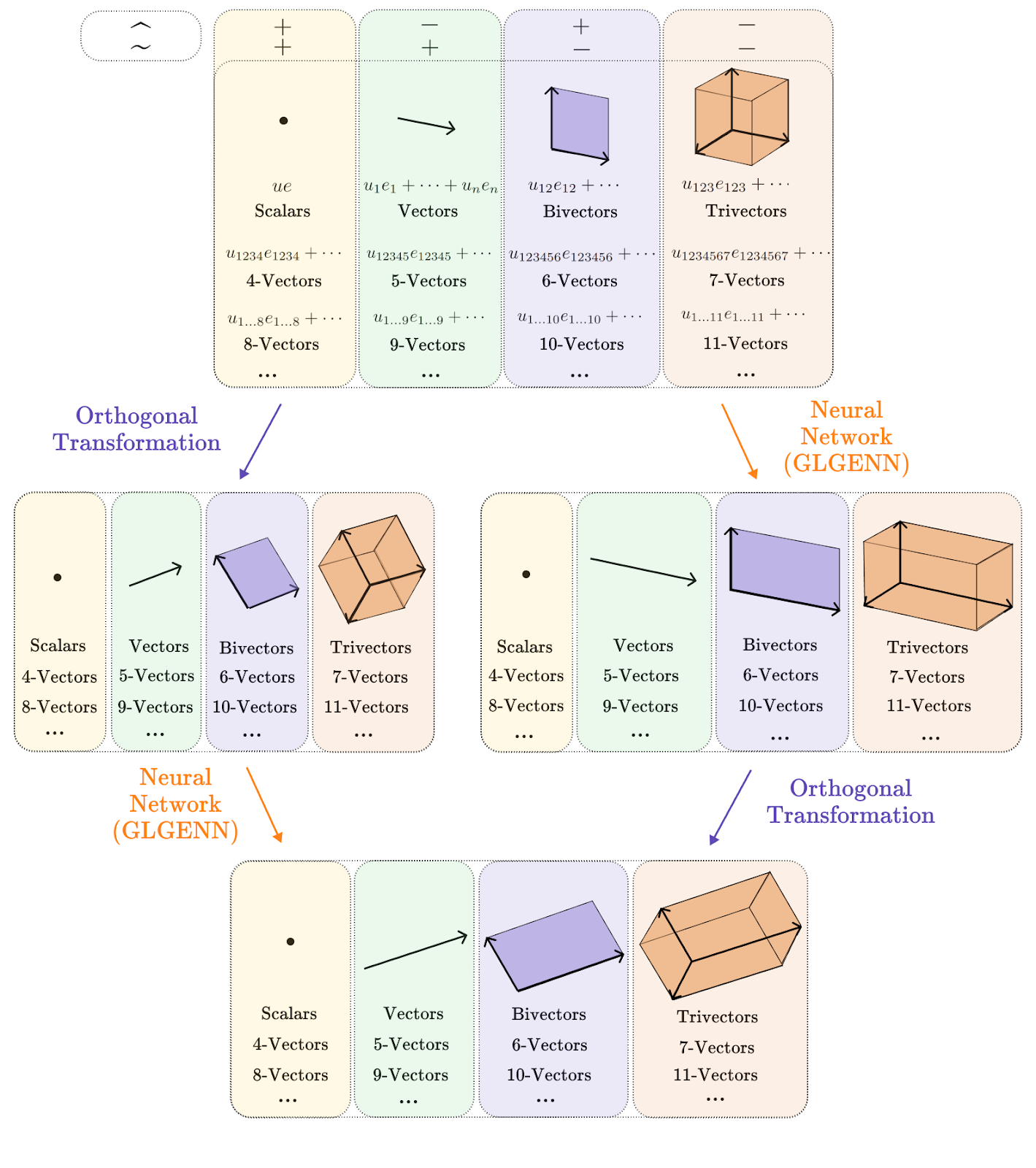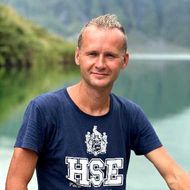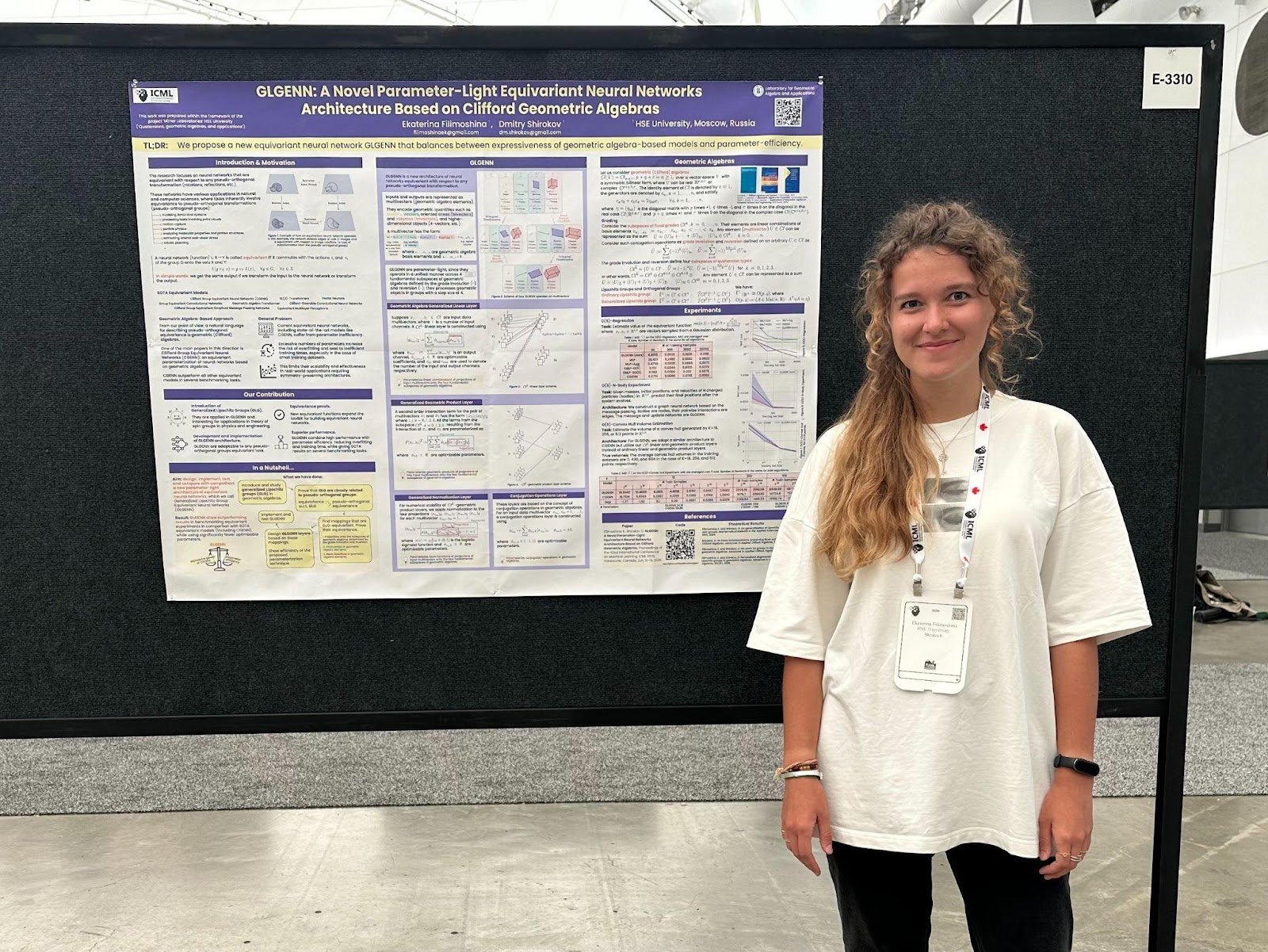HSE Researchers Introduce Novel Symmetry-Aware Neural Network Architecture

Researchers at the HSE Laboratory for Geometric Algebra and Applications have developed a new neural network architecture that can accelerate and streamline data analysis in physics, biology, and engineering. The scientists presented their solution on July 16 in Vancouver at ICML 2025, one of the world's leading conferences on machine learning. Both the paper and the source code are publicly available.
Many physical systems—from robots to molecules to charged particles—exhibit the same behaviour when rotated or mirrored. Modern equivariant neural networks are specifically designed to recognise and preserve such symmetries in data, making them especially valuable for scientific and technological applications ranging from modelling chemical compounds and analysing physical processes to image recognition.
However, these models have a drawback: their high accuracy comes at the cost of increased complexity. They often require a large number of trainable parameters, making them resource-intensive and prone to overfitting—especially when training data is limited.
Ekaterina Filimoshina and Dmitry Shirokov, researchers at the Department of Mathematics and the Laboratory for Geometric Algebra and Applications of the HSE Faculty of Economic Sciences, have developed GLGENN (Generalized Lipschitz Group Equivalent Neural Networks), a neural network architecture designed to overcome these limitations. It enables models to preserve data symmetries using significantly fewer parameters. The authors based their design on the well-established mathematical framework of Clifford (geometric) algebras and introduced a novel weight-sharing technique that respects the underlying algebraic structures.
'We set out to design a model that is both intelligent and lightweight,' says Ekaterina Filimoshina, Research Assistant at the HSE FES Laboratory for Geometric Algebra and Applications. 'GLGENN demonstrates that equivariant neural networks don’t need to be large and complex—they can learn effectively, even from limited data, without compromising quality.'

The model has been tested on a variety of tasks, ranging from simulating physical processes to handling geometric data, and has demonstrated results comparable to or better than existing methods. Additionally, GLGENN operates faster and more efficiently due to its reduced number of trainable parameters, making it more accessible for practical applications.

Dmitry Shirokov
'These results could mark a significant step toward the development of new neural-network tools for science and technology' adds Dmitry Shirokov, Head of the HSE FES Laboratory for Geometric Algebra and Applications. 'We are confident that the geometric-algebra approach will find applications across a wide range of fields, including bioinformatics, robotics, and geoinformatics.'

Participation in ICML served as recognition of the high level of machine learning research conducted at HSE University. The scientists plan to further develop the GLGENN architecture by expanding its capabilities to handle new types of data and exploring its potential applications in physics, robotics, and computer vision.
The study was supported by the HSE Mirror Laboratories project titled 'Quaternions, geometric algebras, and applications.'
See also:
'We View Mathematics as a Universal Language for Natural Sciences, Economics, and Computer Science'
The Laboratory for Geometric Algebra and Applications at the HSE Faculty of Economic Sciences is developing a universal language for mathematics, physics, and other exact and natural sciences. It is creating computational methods that are applied in geometry, physics, machine learning, engineering, computer science, and other fields. The laboratory’s staff, including doctoral students, have published numerous articles in leading scientific journals and have taken part in major international conferences. Dmitry Shirokov, Head of the Laboratory, spoke with the HSE News Service about their work.
HSE Scientists Optimise Training of Generative Flow Networks
Researchers at the HSE Faculty of Computer Science have optimised the training method for generative flow neural networks to handle unstructured tasks, which could make the search for new drugs more efficient. The results of their work were presented at ICLR 2025, one of the world’s leading conferences on machine learning. The paper is available at Arxiv.org.
Neural Network Trained to Predict Crises in Russian Stock Market
Economists from HSE University have developed a neural network model that can predict the onset of a short-term stock market crisis with over 83% accuracy, one day in advance. The model performs well even on complex, imbalanced data and incorporates not only economic indicators but also investor sentiment. The paper by Tamara Teplova, Maksim Fayzulin, and Aleksei Kurkin from the Centre for Financial Research and Data Analytics at the HSE Faculty of Economic Sciences has been published in Socio-Economic Planning Sciences.
Larger Groups of Students Use AI More Effectively in Learning
Researchers at the Institute of Education and the Faculty of Economic Sciences at HSE University have studied what factors determine the success of student group projects when they are completed with the help of artificial intelligence (AI). Their findings suggest that, in addition to the knowledge level of the team members, the size of the group also plays a significant role—the larger it is, the more efficient the process becomes. The study was published in Innovations in Education and Teaching International.
Advancing Personalised Therapy for More Effective Cancer Treatment
Researchers from the International Laboratory of Microphysiological Systems at HSE University's Faculty of Biology and Biotechnology are developing methods to reduce tumour cell resistance to drugs and to create more effective, personalised cancer treatments. In this interview with the HSE News Service, Diana Maltseva, Head of the Laboratory, talks about their work.
Master’s Students of HSE, University of Campinas, and Tsinghua University Publish Joint Student Research Collection
Master’s students of the HSE ISSEK programme ‘Science, Technology and Innovation Management and Policy’ have released a joint research collection with the University of Campinas (Brazil) and Tsinghua University (China) titled ‘Being Innovative or Being on the Safe Side—Managing the Risk of Failure.’ The authors explore how organisations perceive risks and embrace innovation within different cultural contexts.
‘A Turn Away from Stereotypes’: Moscow Hosts ‘Researching the Deaf Community’ Conference
On October 17–19, 2025, the third annual interdisciplinary conference ‘Researching the Deaf Community 2025: on the Periphery of Attention’ took place at GES-2 House of Culture in Moscow. The event was organised with the participation of the HSE International Laboratory for Social Integration Research. HSE University Vice Rector Irina Martusevich addressed attendees at the opening ceremony.
Exploring the Mind: HSE Scientists Discuss Cognitive Technologies of the Future
Why we make irrational decisions, how the brain responds to fakes, and whether neural networks are capable of thinking—these were the topics discussed by early-career scientists of HSE University during the NAUKA 0+ science festival. The event brought together students and experts from various fields, united by a common goal—to deepen their understanding of the human brain and cognitive technologies.
HSE Researchers Assess Creative Industry Losses from Use of GenAI
Speaking at the IPQuorum.Music forum on October 15, Leonid Gokhberg, HSE First Vice Rector, and Daniil Kudrin, an expert at the Centre for Industry and Corporate Projects of HSE ISSEK, presented the findings of the first study in Russia on the economic impact of GenAI on creative professions. The analysis shows that creators’ potential losses could reach one trillion roubles by 2030.
International Dialogue on Urban Development: Dynamic Urbanism and Green Infrastructure
In September 2025, the HSE Faculty of Urban and Regional Development (FURD) hosted a delegation of leading scholars and urban development experts from China. Two seminars were held at the Shukhov Lab with the participation of Chinese colleagues: the first focused on green infrastructure, while the second explored the theme of dynamic urbanism. In addition, a meeting between the Chinese delegation and representatives of FURD took place at the university’s main building on Pokrovsky Bulvar. The participants discussed opportunities for expanding cooperation between universities and research centres.


